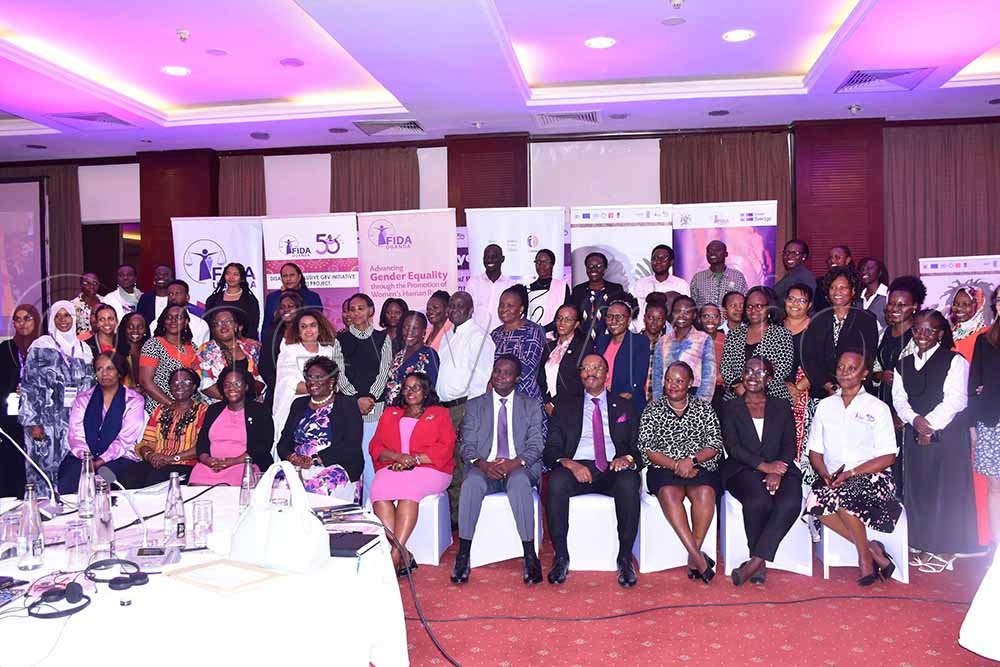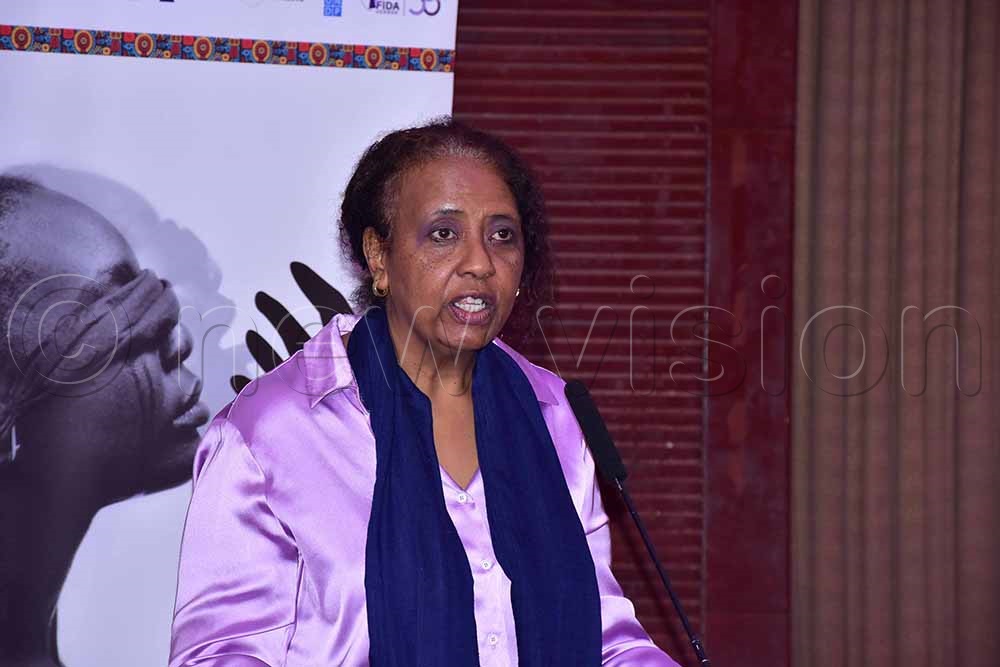Justice Okalany advocates for sexual violence survivors
Justice Okalany warned that widespread sexual violence in the Horn of Africa, particularly in conflict situations, continues unchecked because of weak or absent justice systems.
Lady Justice Susan Okalany urged states to take bold steps to hold sexual violence perpetrators accountable and centre the experiences of victims in their response. (Credit: John Musenze)
KAMPALA - Justice for survivors of sexual violence in Africa must go beyond rhetoric and borders, Lady Justice Susan Okalany has said, urging states to take bold steps to hold perpetrators accountable and centre the experiences of victims in their response.
Speaking at the Regional Gender Forum held at Serena Hotel Kampala on August 29, Justice Okalany warned that widespread sexual violence in the Horn of Africa, particularly in conflict situations, continues unchecked because of weak or absent justice systems.
“Many of these acts amount to war crimes,” she said. “Yet in countries like South Sudan, perpetrators remain unpunished because functioning justice systems are either absent or inadequate. This conversation is vital because it allows us to examine how states can and must be held liable for atrocities committed within their jurisdictions.”
She stressed that “justice beyond borders must ensure no safe haven exists for offenders,” calling on African nations to close the ratification gap on women’s rights treaties, adopt survivor-centred approaches, and use universal jurisdiction to prosecute perpetrators.
Delegates from Ethiopia, Sudan, Kenya and Uganda at Serena Hotel in Kampala after the Regional Gender Forum conference. (Credit: John Musenze)
The forum, organised by FIDA Uganda in partnership with the SIHA Network, brought together justices, legal practitioners, government officials, and civil society leaders under a shared mission of advancing women’s rights and strengthening regional accountability.
Lilian Adriko, Chief Executive Officer of FIDA-Uganda, reminded participants that the day’s theme was grounded in the African Charter on Human and Peoples’ Rights.
“The Charter recognises not only the rights of individuals but also those of communities,” she said. “This dual framing underscores that justice in Africa is both individual and collective—protecting the dignity of each woman and girl, while recognising the shared struggles of communities facing conflict, displacement, patriarchy and poverty.”
Adriko added that women’s rights could not be achieved in isolation from the well-being of society as a whole, and accountability must therefore extend beyond national boundaries to regional and continental levels.

Hala Yasin Alkarib
Hala Al-Karib, regional director of the SIHA Network, underscored the importance of Pan-African solidarity in tackling systemic gender-based violence.
“SIHA has never achieved its mission in isolation,” she said. “It is through working together, especially with partners like FIDA-Uganda, that we have made the greatest impact. Unity and collaboration are essential because no single organisation can overcome these challenges alone.”
She noted that while SIHA has learnt much from its work across the region, emerging threats and shifting contexts demand fresh approaches and continued partnership.
The Regional Gender Forum closed with a strong message: the struggle for women’s rights in Africa cannot be confined by borders or weakened by fragmented responses.
It requires collective effort, survivor-centred justice, and firm accountability at both national and regional levels.